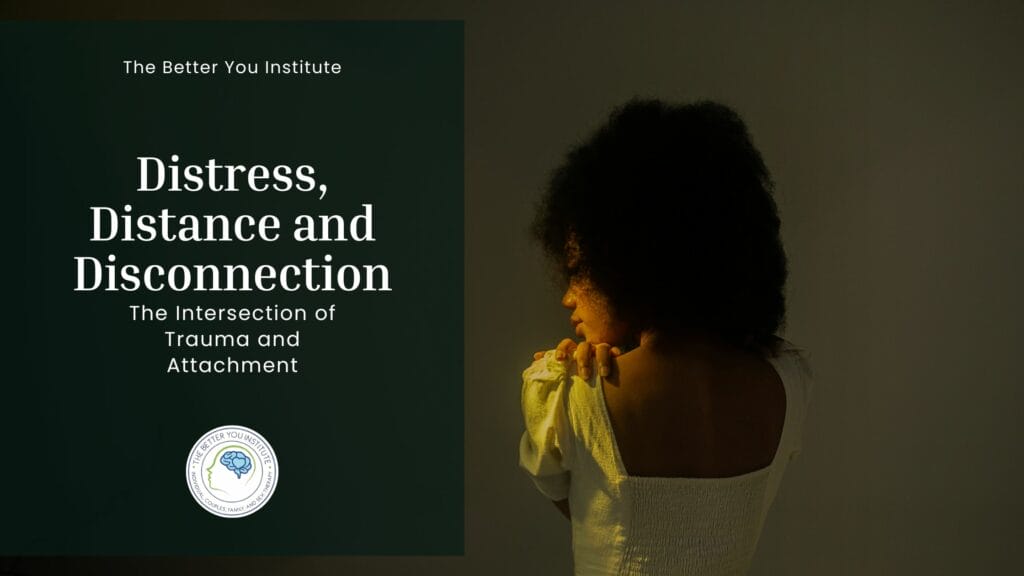
How do you define forgiveness? What has your family, friends, an institution, or life taught you about responding to an offense? Most people understand on a fundamental level that letting go of past offenses is a healthy practice. There are many misconceptions about what it means to forgive, when to forgive, and how to forgive. This article will define forgiveness, specifically what it is and what it is not. Many people who struggle to forgive struggle because of misconceptions about what it means to forgive and what forgiveness looks like. This article will also address why it is important to practice forgiveness and how to begin the process of forgiveness.
Table of Contents
What is forgiveness?
Forgiveness can look different from person to person. There are many different ways a person can practice forgiveness. Before we define forgiveness, let’s clarify what forgiveness is not.
| Forgiveness is not… | Forgiveness is… |
| Pardoning an offense | thoughtfully assessing the damages done by an offense and then choosing to move forward |
| Condoning or excusing a harmful a behavior or decision | Being honest about the harmful impact of a behavior or decision |
| Simply saying “I forgive ____” | A willful act of letting go that engages the heart and mind |
| Justification (you can forgive and believe that what happened or didn’t happen was unfair) | Authenticated by truth-telling, i.e., being honest about the unfairness of the situation |
| Saying “I’m not going to let (insert offense here) get to me” | Identifying, processing and letting go of anger, resentment or other difficult emotions |
| Reconciliation | Still forgiveness, even if the relationship is not restored. It is not necessary to reunite or be friends or partners again to authenticate forgiveness |
| Passive/ Letting time heal the wound/ Forgetting/ moving on | An active process. You can move on and never look back without forgiving. You can’t call moving on forgiveness without looking at what happened and being honest about the damages done |
| A quick fix or simply making a decision to forgive | A process that requires an ongoing commitment to a decision |
| Having positive feelings | when you honor all of the feelings that came from the experience, not just the positive ones |
| Accepting what happened knowing God, karma or a higher power will punish the offender | Different from seeking justice for an offense |
| Balancing the scales / Getting even | Different from revenge |
| Accepting what happened | Different from acceptance. you can accept the facts of a situation without forgiving. Acceptance can be a part of the forgiveness process but not all acceptance is forgiveness |
Real forgiveness is the process of willfully letting go of anger and resentment towards yourself, another person, a situation, or an institution and moving forward after thoughtfully assessing the damages done by the offense.
Two types of offenses
There are two main types of offenses: acts of commission and acts of omission. A commissive offense is an action or something done that causes harm or is insulting. An example of an act of commission is slander; talking bad about another person is an action. An offense of omission is when harm and insult are brought on by inaction. A friend who decides not to disclose knowledge of their friend’s partner cheating commits an act of omission because by not saying anything, they violated their friend’s well-being and trust. Another way to think about the difference between a commissive offense and omissive offense is in terms of explicit vs. implicit acts. Commission offenses are explicit in nature; they can be perceived using the 5 senses. Omission offenses are implicit as they cannot be perceived by the five senses, only reasoned as violent. Even when it cannot be measured or observed by others… harm is harm; violence is violence; and abuse is abuse.
Why Forgiveness Matters
Holding onto negative emotions, such as anger, resentment, and self-loathing, can take a toll on our mental and physical health. Research shows that people with a more positive outlook on situations and who can hold empathy tend to have lower rates of chronic illnesses and better outcomes when sick. Therefore, practicing forgiveness is crucial to a person’s mental, physical, relational, and spiritual well-being. There are many benefits to practicing forgiveness, both for self and for others. Moving from anger to resolution or resentment to empathy can be healing and protective in the long term.
While forgiveness is essential to wellness, it can be a challenging thing to practice. Especially when the offense is a deep wound that drastically changes your life or how you see yourself in the world. The experience of being unforgiving, specifically the bitterness, resentment, anger, and hatred one rightly feels after a betrayal, is like an infection in a wound. When wounds are infected and left untreated, the infection spreads and creates further damage to the body. In the same way, emotional wounds can become “infected” when ignored or not properly addressed. An infected emotional wound spreads and affects a person’s life, relationships, health, and overall well-being. Forgiveness matters because your life matters. Being unforgiving robs your life of an abundance of love, joy, and peace that makes life fuller and richer. I saw a post online once that read “imagine being bitten by a snake, and instead of trying to help yourself heal and recover from the poison, you are trying to catch the snake to find out why it bit you and prove to it that you didn’t deserve that.” I think this quote sums up perfectly an important truth we often forget when it comes to responding to an offense: seeking healing is far more rewarding than seeking answers.
Forgiving the Unforgivable
If you have been betrayed or betrayed yourself in a way that is unimaginable, you may feel forgiveness is impossible. If this is you, first of all I want to say your feelings are valid; you’re not too sensitive or being immature. Betrayal ignites a need for protection. We go into our safe spaces, whether that means shutting down, advocating for ourselves, or holding onto something in hopes that it never happens again. It makes sense that you can’t even imagine letting go of what happened and/or what didn’t happen that cut you deeply. You didn’t deserve it. You read that right. Even if the betrayal was something you did to yourself, you didn’t deserve it. When you give yourself the time and grace necessary to properly heal open emotional wounds, you will find that all offenses are forgivable. There is no such thing as an unforgivable offense only unforgettable ones. Remember, forgiveness doesn’t mean forgetting.
Chances are, the thing that needs forgiveness within yourself or another comes from something or someone else long before you or the person. It is quite common that what happens in our childhood will influence our adult relationships with ourselves and others. Whether you are facing self-sabotage or a lineage of behaviors you now see are detrimental to you, your upbringing and family history probably holds the answers to why you are participating in these behaviors.
You cannot unlive the harm that you experienced. That said, you can give yourself permission to allow safe people to come alongside you, grieve, and heal from your trauma. Put an end to the torment of unhealed trauma and the patterns that evolved due to the injury. The statements above are to empower you, not to tell you, “just get over it.” You don’t deserve to continue paying for a crime that has already cost you so much. Yes, even if you did it to yourself. Give yourself permission to heal and get through the hurt because you deserve better.
For offenses that seem unforgivable, healing is the most important next step. After healing and freeing yourself from what happened, you can choose whether or not you want to forgive the offender or not. True forgiveness comes from the heart. A broken and traumatized heart cannot and should not attempt forgiveness until it is properly healed or at least in the process of properly healing.
7 R’s to Forgiving Self and Others
- Recognize- Awareness is the first step to forgiveness. You must be aware of what happened, how it happened, and how it affected you and your life. You must be honest about your assessment of the offense and the damages because you can’t heal wounds that you pretend don’t exist. It may be difficult to do, but try to be as honest as possible about the following questions:
- How did the offense make you feel?
- How did it impact your view of yourself?
- How did it impact your view of others?
- How did it impact your view of the world?
- How did it, or is it impacting your relationship(s) now?
- What did it cost you or someone else (real or imagined) that you needed to grieve?
- Did it perpetuate unhealthy patterns in your life?
For example, let’s say I am seeking to forgive my brother for including me as a cosigner for his school loan, skipping payments, and ruining my credit. The first step to letting go of this offense could include:
- Identifying my feelings- I feel angry, sad, hurt, disappointed, betrayed, and disrespected. I feel angry because I think it was an unfair request asked of me, given my financial situation. I feel disrespected because it seemed like he could only think of himself in the situation. I feel hurt because I believe he guilted me into the decision. I feel disappointed because the loan my brother took out ruined my credit. I feel betrayed and disrespected because he said he will keep up with the payments, but he did not; all the late payments have ruined my credit. He doesn’t seem to understand how unfair this is to me.
- How did it impact your view of yourself? I lost trust in myself and my ability to keep my boundaries and advocate for myself.
- How did it impact your view of others? This situation has made me more cautious with my generosity and doing favors for people. I see others as untrustworthy because of what happened.
- How did it impact your view of the world? I can’t trust people to have my back, and nothing will work out because my credit score has been ruined.
- How did it, or is it impacting your relationship(s) now? I haven’t been talking to my brother even though I miss him. I’m confused about how to move forward with a relationship.
- What did it cost you or someone else (real or imagined) that you needed to grieve? My credit score has tanked. I’m anxious when friends call me because I think they want something from me. I’m just not relaxed anymore. The situation cost me my hard work in building good credit, peace, and trust in myself and others.
- Did it perpetuate unhealthy patterns in your life? Yes, now I’m constantly checking my credit score, and I’ve started isolating myself. I was so embarrassed. I felt like a joke to people.
- Reappraise – To reappraise means to assess and see if you find something different. Here, you can reframe or reinterpret an event or experience to reduce negative feelings about it. Reappraising requires honesty, compassion, and empathy. During reappraisal, the re-interpretation requires honoring one’s humanity and the humanity of others to put the offense in its proper context. Honoring your own or another person’s humanity does not excuse the harm done. It offers a deeper understanding of the offense to help you with the next three steps of this process. Again, empathy is key to reappraising. Empathy means walking in another’s shoes and sharing their experiences and feelings. True empathy is like putting on the humanity of another, wearing their history, story, pain, weaknesses, and limitations to rightly “see” them and truly understand them.
Within the process of forgiveness, you may need to own that you played a role in the wounding. During the reappraisal step, one often becomes aware of the apologies one needs to make. Take accountability and apologize to yourself or others (if possible) for any harm done or unfair judgment made unknowingly. The reappraisal step is important because it helps to create a separation between the offender(s), (yourself, the individual, persons, or institution) and the wounds that were inflicted.
- Continuing with our example, reappraising could look like the following: “I feel disrespected, and I know my brother was not trying to be disrespectful. Yes, he can be irresponsible, but he is not a disrespectful person. He was in a desperate situation and made a rash decision without considering all the consequences. He has been independent for a long time. He has always decided on things quickly and dealt with the consequences later, so this isn’t personal to me. He had little to no guidance in life. He is doing his best to survive. The decisions he made to survive cost me, but it was not malicious. He honestly did not see things playing out the way they did. I didn’t even see it. I chose to cosign the loan. I should have given the decision more thought and had better boundaries with my finances.
- Release- This step may feel immature to some. For others, once you have separated the person from the wounds through compassion, understanding, and empathy, you may be ready to choose to free yourself from the weight of the offense. You do this by making a conscious decision (you can even say it aloud) to let go of the desire to continue holding on to the offense. Don’t just say, “I forgive you.” It is better to be specific about the wounds. Instead, say, “I forgive you for the wound when you _____________ (describe the wound).” Name each wound. Do not leave anything out. Each wound is a different source of infection. You want to drain the wounds and remove all the infections.
-
-
- If you get stuck or cannot complete this step, perhaps more grieving and reappraisal are needed. Go back to the previous steps. Remember, this is a process. Sometimes, you will have to go back multiple times before you can move forward. After moving forward, you may have setbacks.
- If you find there is no more grieving left, but you still can’t forgive. Feel free to skip this step and go to the rewrite step. You can come back to the release step when you feel ready.
- An example of releasing from our case study: I forgive my brother for bulldozing all my hard work in building good credit. I forgive my brother for his failure to make timely payments. I forgive my brother for not being transparent or realistic about his challenges. I forgive my brother for making a promise he did not fulfill. I forgive myself for involving myself in my brother’s issues and not having good boundaries.
-
- Rewrite & Release-
 Once you have compassionately processed and felt all your negative feelings of shame, guilt, anger, bitterness, revenge, resentment, hate, etc., you will be ready to release them. People tend not to be able to forgive because they become stuck in their negative feelings and do not know how to let them go. These negative emotions often cause people to make unhelpful (sometimes untruthful) judgments about themselves, others, and the world around them. Holding on to the pain and negativity results in a continuation of your hurting. It is crucial also to release those unhelpful perspectives and beliefs and re-write negative narratives that do not serve you or your relationships.
Once you have compassionately processed and felt all your negative feelings of shame, guilt, anger, bitterness, revenge, resentment, hate, etc., you will be ready to release them. People tend not to be able to forgive because they become stuck in their negative feelings and do not know how to let them go. These negative emotions often cause people to make unhelpful (sometimes untruthful) judgments about themselves, others, and the world around them. Holding on to the pain and negativity results in a continuation of your hurting. It is crucial also to release those unhelpful perspectives and beliefs and re-write negative narratives that do not serve you or your relationships.
- Rewriting from our example is changing the belief of “my brother does not care about me; he does not take me or my boundaries seriously” to “my brother doesn’t have the best decision-making skills to process his plans. His ruining my credit was devastating in many ways but not done maliciously.” This narrative helps me release my hate, anger, and resentment toward my brother and even invites compassion and empathy into our relationship. Likewise, I can change the unhelpful perspective of “I am dumb for agreeing to cosign the loan to- “it was kind of me to want to help out my brother, and it would have been wiser to talk more about the decision with someone else, or considered alternatives before taking on such a big responsibility.”
- Restore- After that unhealed trauma and a lack of forgiveness aren’t running things and after releasing the negative feelings and beliefs, what will you do differently? What things did you stop doing that you would like to start? What did you start doing that you want to stop? What balance do you want to strike to restore yourself and your relationships to have a fuller, more prosperous, and healthier life? Were there material things you lost that can be restored? This step requires you to intentionally create the life you want now, now that you have released the burdens of being unforgiving.
- Let’s say after the offense, I stopped communicating with my brother because I was too angry and hurt to say anything to him. I can reach out to see if we can restore our relationship; we can have an adult conversation where I don’t shame or blame him for everything. I take accountability for my decision to cosign. I set a boundary and tell him I am uncomfortable co-signing any more loans for him, so he shouldn’t ask. I would apologize for cutting him out of my life. I could tell him I don’t want to shut him out my whole life, just the financial portion. I don’t want to live holding a grudge against my brother forever. I want us to be able to be like we were before the bad credit fiasco. To restore myself, I will hold myself accountable to stop making decisions out of guilt, think carefully and consider the impact of a decision before I sign or say yes, and have better boundaries.
- Repeat- As mentioned earlier, forgiveness is not linear; it is a process. Repeat the above steps as needed. Remember, getting retriggered does happen. Retriggering can happen even after processing an event or experience and working through all the steps above. Feeling retriggered does not mean that you have not truly forgiven. It means that life and relationships are complicated, and emotions are tricky. No such thing as one and done with healing or forgiveness. Let go of the expectation to get over it. You may get over it, or you may never get over it. That does not matter. It is more important that you stay committed to the process of forgiveness by repeating and re-working the steps above as needed. Doing this helps you take back your power and decreases the impact of the harm done.
- Restitution- This last step of forgiveness is optional. Restitution is a deeper level of restoration; it is repairing the damages done against a person or piece of property. This can look like restoring a person’s character or image, giving compensation, or literally replacing things damaged. Restitution is not necessary to authenticate forgiveness but can be a powerful backing to an apology. Restitution is sometimes impossible (the person moved away, died, or otherwise). Other times, it is unwise or unsafe. If you feel safe enough and feel it is wise or possible, this can be the next step in forgiveness. The restitution step requires verbally or tangibly restoring what was lost, destroyed, or stolen to its proper place. Some examples of restitution are: restoring the relationship lost or returning to the person you slandered and not only taking back the things said in anger and bitterness but verbally affirming their worth and value.
-
- Let’s say while I was bitter and angry, I tweeted and posted mean statuses online about my brother. Restitution could look like me making a tweet or post not only taking those things back but celebrating him, highlighting an achievement or anything of that sort that restores worth and dignity to his name, character, and image.
Conclusion
In conclusion, offenses are inevitable in a world of imperfect people whose decisions and indecisions can cause pain or create deep emotional wounds. Sometimes we can wound ourselves with our own decisions and indecisions. When we ignore, minimize, or hold on to painful experiences, it delays healing and can leave us stuck in the misery of being unforgiving. Being unforgiving robs our life and relationships of joy, peace, and love. Forgiveness is a key that unlocks the door to more affluent, fuller, healthier lives and relationships. If you would like help processing an offense or letting go of being unforgiving towards yourself, another person, an institution, or a community, please call us today at 267-495-4951 to set up an appointment with one of our trained therapists.







